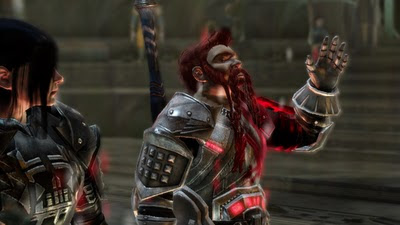Since I introduced Game Studies last week, I thought that I'd continue that discussion with a talk about Games and Culture: a journal of interactive media.
From Their Website - Games and Culture: A Journal of Interactive Media is a new, quarterly international journal that publishes innovative theoretical and empirical research about games and culture within interactive media. The journal serves as a premiere outlet for ground-breaking work in the field of game studies.
Of primary importance will be bridging the gap between games studies scholarship in the United States and in Europe.
One of the primary goals of the journal is to foster dialogue among the academic, design, development, and research communities that will influence both game design and research about games within various public contexts. A second goal is to examine how gaming and interactive media are being used outside of entertainment, including in education, for the purposes of training, for military simulation, and for political action.
A Few Thoughts of My Own - Last week I said that gaming journals were a fantastic way for gamers and people interested in games to connect with a more mature audience. In existence since 2006, I think G&C continues this promotion of gaming as a valid academic interest. Like Game Studies, this journal addresses a series of issues which vary in their accessibility to the "general public." Unlike Game Studies, however, it feels like one need not possess a prior fascination with gaming in order to enjoy most of the articles published. One should, however probably have an interest in philosophy, religion, or the humanities.
Unfortunately for us, only abstracts are available online without a paid subscription. I generally want to cover things that you can access for free on the internet. I felt that this needed mentioning though for one main reason. While its paid status is unfortunate for the causal viewer, the price of its subscription is on par with other scholarly journals I have seen in other academic disciplines. In that sense it is good to see a gaming journal taken seriously enough that it can demand subscription prices on par with so called "serious subjects". It says a great deal about the status with which some people hold the subject, and hints at good things for gaming's future within academia.
Keeping in mind that I only have access to their abstracts, I have listed a number of article titles below which caught my interest so that you can get a taste of what is being published.
Current Issue - January 2011; volume 6, issue 1
Past Article of Interest
- Celia Pearce
- Tanya Krzywinska
- Kevin Schut
- Gerald A. Voorhees
- Olli Sotamaa
- Gordon Calleja






